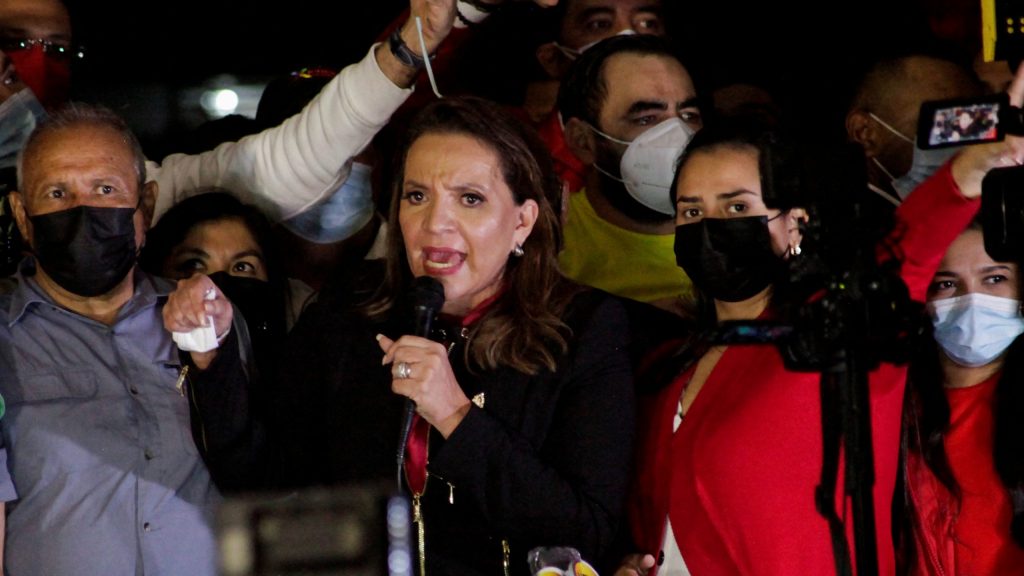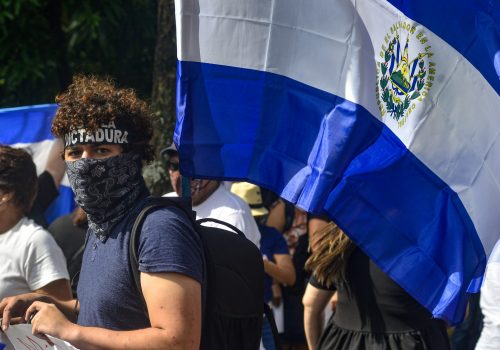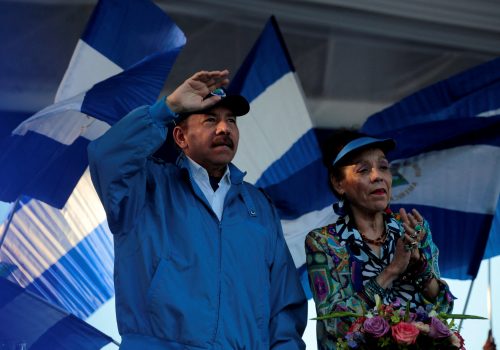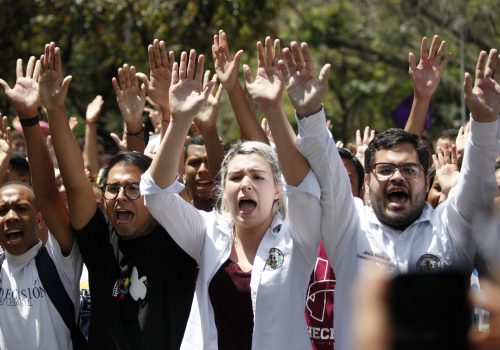Hobbled by widespread corruption and a pervasive drug trade that fuels a seemingly endless cycle of violence, Honduras will swear in its first female head of state on Thursday.
But President-elect Xiomara Castro, who has pledged to clean up her country, won’t be the only powerful woman drawing attention that day: She’ll take office as US Vice President Kamala Harris—the White House point person for the Northern Triangle—looks on.
Both face the daunting challenge of helping to reverse the root causes of outward migration from the region of around thirty-three million people. Jason Marczak, senior director of the Atlantic Council’s Adrienne Arsht Latin America Center, weighs in on how they plan to tackle that task—and whether they’ll succeed.
How did Castro pledge to reform Honduras, and what expectations does she face?
Castro enters office following a campaign in which improving transparency and combating corruption were her top priorities. She has already committed to reaching out to the United Nations for help setting up an anti-corruption commission. Success here is fundamental to the country’s future, since Honduras ranks among the world’s most corrupt countries—on par with Iraq and Zimbabwe—according to Transparency International. Corruption is pervasive across government, with pandemic procurement offering further opportunities for crooked officials. The outgoing president, Juan Orlando Hernández, even faces possible extradition to the United States for drug trafficking. Hopes are high that she will make inroads, but a political feud in congress may present roadblocks for her agenda.
What role has Honduras played in contributing to broader regional instability—and how much will Castro feel pressured to reverse those dynamics?
The greatest threat to stability in Central America is currently in Nicaragua, just south of Honduras. There, President Daniel Ortega—who fraudulently assumed another term in office this month—is systematically dismantling democratic freedoms and civil liberties. Nicaraguans are fleeing, partly through Honduras, in hope of reaching the United States. US action beyond individual sanctions is needed to quell the crisis there and to provide additional financial and technical assistance to help ease the migration pressures on both Honduras and Costa Rica (which is south of Nicaragua). But providing economic opportunity and greater security in Honduras will also directly alleviate pressure at the US southern border: Last year, more Hondurans arrived there than from any of the three northern Central America countries. Honduras is also a stop along the migrant journey for many Haitians, Cubans, and others.
Harris has been designated as Biden’s point person in the region. How can she leverage that role to help tackle the root causes of migration?
This has been a priority for the Biden-Harris administration from the outset—but it’s not a short-term fix. The problems are entrenched in societies like Honduras. But US partnership has the potential to put willing countries on the right track: Harris is using her role to lead a US government-wide strategy to address economic insecurity, corruption, and criminal violence, as well as to advance efforts to improve human rights and gender-based violence. For example, her Call to Action for private-sector investment in the region, announced last May, has yielded $1.2 billion in commitments. What Harris now needs is more willing partners in the region; Castro has the opportunity to be one.
To what extent can any single country (whether Honduras or others) lead the charge in addressing the collective ills of the Northern Triangle?
The challenges of northern Central America cannot be resolved by any one country. Each country has its own history and set of challenges—as well as an opportunity to address them. But while domestic political circumstances require a country-by-country approach, the region does share overarching challenges that require sustained, committed US support and partnership. Seismic political differences in the region mean that leaders rarely come together to talk; investment is also more attractive from a regional vantage point. In the past, the United States has found opportunities to cajole Central American countries to find common ground when otherwise not possible. But that will be an uphill battle: Besides dealing with stubborn autocrats such as El Salvador’s Nayib Bukele, Washington must also contend with an increasingly assertive China in Central America.
Further reading
Wed, Dec 8, 2021
Democracy in Latin America is under threat. These two summits are a chance to fix it.
New Atlanticist By
As nations across the Americas come together to address their shared shortcomings, here's a roadmap to help bolster their democratic institutions.
Fri, Dec 10, 2021
Nicaragua has cut ties with Taiwan and backed Beijing. What’s next for China’s diplomatic offensive?
New Atlanticist By Dan Peleschuk
Our experts break down what swayed Nicaragua, what China has to gain, and what the United States stands to lose.
Tue, Jan 4, 2022
Venezuela’s youth have a long-term strategy for building democracy. Biden should listen.
New Atlanticist By
An entire generation of Venezuelans have grown up in a failed state, which is why they'll be crucial to the future of the country’s democracy.
Image: Honduran President-elect Xiomara Castro gives a speech to supporters during a vigil outside the Honduran congress in Tegucigalpa, Honduras January 22, 2022. Photo by Fredy Rodriguez/REUTERS



